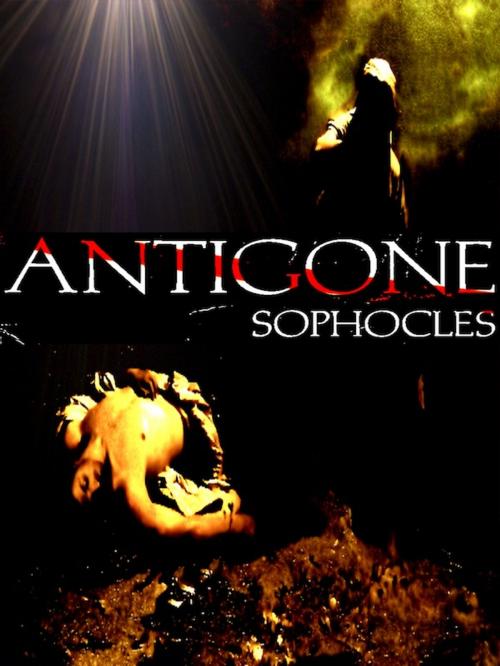| Author: | Sophocles | ISBN: | 1230000701624 |
| Publisher: | Editions Artisan Devereaux LLC | Publication: | October 4, 2015 |
| Imprint: | Language: | English |
| Author: | Sophocles |
| ISBN: | 1230000701624 |
| Publisher: | Editions Artisan Devereaux LLC |
| Publication: | October 4, 2015 |
| Imprint: | |
| Language: | English |
“He who cherishes an individual beyond his homeland… is nothing…"
Towering over the rest of Greek tragedy, the three plays that tell the story of the ill-fated Theban royal family—Antigone, Oedipus the King and Oedipus at Colonus—are among the most enduring and timeless dramas ever written.
Antigone, perhaps Sophocles' finest play, pits the power of the state against traditional values and common decency.
When Antigone, daughter of Oedipus, chooses to obey the law of the gods rather than an unconscionable command from Creon, ruler of Thebes, she is condemned to death.
Antigone stands up to Creon by simply stating that her honor, and the honor of her family, compelled her to do what she had done, and that it was also the law of the gods.
Creon says that she must pay the ultimate price for her "treachery." He sentences her to death, and orders that she be walled up inside a tomb.
How the gods take their revenge on Creon provides the gripping denouement to this compelling tragedy, still one of the most frequently performed of classical Greek dramas.
Filled with passionate speeches and sensitive probing of moral and philosophical issues, this powerful drama reveals the grim fate that befalls the children of Oedipus.
Here we find all sides of Sophocles’ genius on display: the verse gorgeous and the characters brilliantly drawn.
It is the classic example of someone standing up and doing the morally correct thing, knowing full well that what they do may cost them their life.
SOPHOCLES (circa 496 BC) is one of three ancient Greek tragedians (along with Aeschylus, and Euripides) whose plays have survived down through the centuries. His most famous plays feature Oedipus and Antigone: they are generally known as the Theban plays. Sophocles is best remembered for having influenced the development of the drama, most importantly by adding a third actor, thereby reducing the importance of the chorus in the exposition of the plot.
“He who cherishes an individual beyond his homeland… is nothing…"
Towering over the rest of Greek tragedy, the three plays that tell the story of the ill-fated Theban royal family—Antigone, Oedipus the King and Oedipus at Colonus—are among the most enduring and timeless dramas ever written.
Antigone, perhaps Sophocles' finest play, pits the power of the state against traditional values and common decency.
When Antigone, daughter of Oedipus, chooses to obey the law of the gods rather than an unconscionable command from Creon, ruler of Thebes, she is condemned to death.
Antigone stands up to Creon by simply stating that her honor, and the honor of her family, compelled her to do what she had done, and that it was also the law of the gods.
Creon says that she must pay the ultimate price for her "treachery." He sentences her to death, and orders that she be walled up inside a tomb.
How the gods take their revenge on Creon provides the gripping denouement to this compelling tragedy, still one of the most frequently performed of classical Greek dramas.
Filled with passionate speeches and sensitive probing of moral and philosophical issues, this powerful drama reveals the grim fate that befalls the children of Oedipus.
Here we find all sides of Sophocles’ genius on display: the verse gorgeous and the characters brilliantly drawn.
It is the classic example of someone standing up and doing the morally correct thing, knowing full well that what they do may cost them their life.
SOPHOCLES (circa 496 BC) is one of three ancient Greek tragedians (along with Aeschylus, and Euripides) whose plays have survived down through the centuries. His most famous plays feature Oedipus and Antigone: they are generally known as the Theban plays. Sophocles is best remembered for having influenced the development of the drama, most importantly by adding a third actor, thereby reducing the importance of the chorus in the exposition of the plot.















